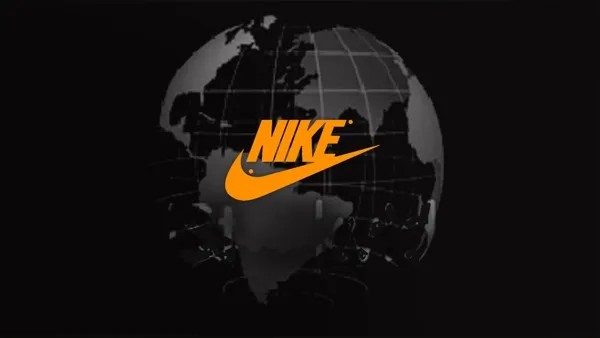Nike: A Global Leader in Sportswear and Innovation...!!!
Nike's legacy of innovation, performance, and style has cemented its position as a leading sportswear brand. With a rich history, high-profile collaborations, and a commitment to sustainability, Nike continues to inspire athletes and fashion enthusiasts worldwide.

Nike, Inc. stands as one of the world's most iconic and influential brands in the sportswear industry. Renowned for its innovative products, powerful marketing campaigns, and deep connection with athletes, Nike has set the standard for performance, style, and brand loyalty. Founded in 1964 by Bill Bowerman and Phil Knight, Nike has evolved from a small distributor of Japanese running shoes into a global powerhouse with a diverse range of products and a significant cultural impact.
History and Origins
Nike's journey began with Bill Bowerman, a track and field coach at the University of Oregon, and his former student, Phil Knight. The duo initially launched Blue Ribbon Sports (BRS) in 1964 as a distributor for the Japanese shoe brand Onitsuka Tiger, now known as ASICS. In 1971, BRS rebranded as Nike, inspired by the Greek goddess of victory. The iconic Swoosh logo, designed by graphic design student Carolyn Davidson, was introduced the same year.
The company's breakthrough came with the introduction of the Nike Cortez in 1972, a running shoe designed by Bowerman. The Cortez became a commercial success, catapulting Nike into the spotlight. In 1978, the company officially adopted the name Nike, Inc.
Innovations and Milestones
Nike has a long history of innovation, introducing several groundbreaking products and technologies that have revolutionized the sportswear industry:
-
Air Technology: In 1979, Nike introduced the Nike Air Tailwind, the first shoe to feature air cushioning technology. Developed by aerospace engineer Frank Rudy, the Air-Sole unit provided enhanced cushioning and support, becoming a staple in Nike's footwear lineup.
-
Just Do It Campaign: Launched in 1988, the "Just Do It" campaign became one of the most memorable and impactful marketing slogans in history. It resonated with athletes and non-athletes alike, embodying the spirit of determination and achievement.
-
Flyknit Technology: Introduced in 2012, Flyknit technology revolutionized footwear construction by using high-strength fibers to create a lightweight, form-fitting upper. This innovation reduced waste and provided a more sustainable and comfortable shoe.
-
Nike Air Max: The Air Max line, introduced in 1987, featured visible air cushioning units, allowing consumers to see the technology inside the shoe. The Air Max series has since become an iconic part of Nike's product lineup, with numerous iterations and collaborations.
Collaborations and Endorsements
Nike has built strong relationships with athletes, designers, and celebrities, further enhancing its brand appeal:
-
Athlete Endorsements: Nike has partnered with some of the world's most famous athletes, including Michael Jordan, LeBron James, Serena Williams, and Cristiano Ronaldo. The Air Jordan line, launched in 1985, became a cultural phenomenon and remains one of Nike's most successful and iconic collaborations.
-
Fashion Collaborations: Nike has collaborated with renowned designers and brands to create unique and stylish collections. Notable collaborations include those with Virgil Abloh (Off-White x Nike), Travis Scott, and Supreme.
-
Sustainability Initiatives: Nike is committed to sustainability and has introduced various initiatives to reduce its environmental impact. The Nike Move to Zero campaign aims to achieve zero carbon and zero waste, with products like the Space Hippie collection made from recycled materials.
Sustainability and Social Responsibility
Nike has made significant efforts to promote sustainability and social responsibility:
-
Sustainable Materials: Nike has increased the use of recycled materials in its products, such as recycled polyester and Flyleather, a material made from at least 50% recycled leather fiber.
-
Waste Reduction: The company has implemented measures to reduce waste in its manufacturing processes, including the use of digital design tools and more efficient production methods.
-
Community Engagement: Nike supports various community initiatives and organizations, including youth sports programs, educational initiatives, and social justice causes. The Nike Community Impact Fund provides grants to local organizations that promote physical activity and social change.
Global Reach and Market Presence
Nike's global reach is unparalleled, with its products available in over 190 countries. The brand operates numerous retail stores, e-commerce platforms, and boasts a robust distribution network. Nike's diverse product range includes performance sportswear, casual apparel, sneakers, and accessories for men, women, and children.
Whether you're an athlete seeking performance gear, a fashion enthusiast looking for the latest trends, or someone who values sustainability and social responsibility, Nike offers a diverse range of products to suit your needs. The brand's unwavering commitment to excellence ensures that it will continue to be a prominent player in the global sportswear and fashion industries for years to come.
What's Your Reaction?

















